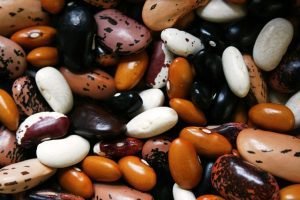
Vegetables for Diabetic Patients
Nourishing Choices: Top Vegetables for Diabetic Patients
Navigating life with diabetes has taught me the significance of making mindful dietary decisions. Among the many options available, vegetables have emerged as a powerful ally in promoting my well-being. In this blog post, I want to share my personal experience as a diabetic patient and shed light on research-supported vegetables that have positively impacted my health. Join me on this culinary journey as we explore the potential benefits of incorporating nutritious vegetables into a diabetic-friendly diet.
Incorporating Vegetables into Diabetic Patient’s Diet

Leafy greens, like spinach and kale, are excellent choices for individuals with the disease. They are low in carbohydrates, high in fiber and rich in essential vitamins and minerals. Incorporating leafy greens into the diet can help regulate blood sugar levels and improve overall health. [Vegetables for Diabetic Patients ]
Leafy Greens:
Leafy green vegetables, such as spinach, kale, and collard greens, have become staples in my quest for optimal health. These vibrant veggies are packed with essential nutrients, including fiber, vitamins, and minerals while offering a low-calorie and low-carbohydrate profile. Studies have demonstrated that leafy greens can improve insulin sensitivity and reduce the risk of type 2 diabetes (1). Adding a generous serving of these verdant delights to your meals can contribute to a balanced and diabetes-friendly diet.

Cruciferous vegetables, such as broccoli and cauliflower, can be beneficial for managing the disease. They are low in calories, rich in fiber, and packed with essential nutrients. [Vegetables for Diabetic Patients ]
Cruciferous Vegetables:
Cruciferous vegetables, including broccoli, cauliflower, and Brussels sprouts, are brimming with health benefits for individuals with diabetes. Rich in fiber, vitamins, and phytochemicals, these veggies have been associated with improved blood sugar control and reduced insulin resistance (2). Incorporating these cruciferous wonders into your meals not only enhances the nutritional value but also adds delightful flavors and textures.

Beans and legumes are excellent choices for managing the disease. They have a low glycemic index, and high fiber content, and provide essential nutrients. [Vegetables for Diabetic Patients ]
Beans and Legumes:
Beans and legumes are nutritional powerhouses that offer a wealth of benefits for individuals managing diabetes. These plant-based protein sources, such as lentils, chickpeas, and black beans, are low in glycemic index and high in fiber, helping regulate blood sugar levels (3). Research suggests that including beans and legumes in a diabetic diet can improve glycemic control and reduce the risk of cardiovascular disease.

tomatoes are rich in vitamins, minerals, and antioxidants, including vitamin C and lycopene, which have been linked to improved insulin sensitivity and reduced risk of complications associated with the disease. [Vegetables for Diabetic Patients ]
Tomatoes:
The vibrant and juicy tomato is not only a culinary delight but also a nutritious addition to a diabetic meal plan. Tomatoes are rich in vitamins A, C, and E, as well as antioxidants like lycopene. Research indicates that the consumption of tomatoes and tomato-based products may contribute to better blood sugar regulation and improved insulin resistance (4). Whether enjoyed fresh in salads or cooked into flavorful dishes, tomatoes provide a burst of flavor and nutritional value.

Cabbage is a beneficial vegetable for diabetic individuals due to its low glycemic index and high fiber content. It can help regulate blood sugar levels, improve insulin sensitivity, and promote satiety, making it an excellent choice for managing diabetes. Additionally, cabbage is packed with essential nutrients and antioxidants that support overall health and may help reduce the risk of complications associated with the disease. [Vegetables for Diabetic Patients ]
Cabbage:
Cabbage, known for its versatility and distinctive crunch, offers numerous health benefits for diabetic individuals. Rich in vitamin C, fiber, and antioxidants, cabbage has been associated with lower blood glucose levels and improved insulin resistance (5). Incorporating this cruciferous vegetable into your diet can add a refreshing twist to your meals while supporting your diabetes management goals.

Bell peppers are a nutritious option for individuals with diabetes. They are low in calories and carbohydrates, making them suitable for maintaining stable blood sugar levels. Bell peppers are also rich in vitamins, particularly vitamin C, which can help support a healthy immune system. Additionally, they contain fiber, which aids in digestion and helps control blood sugar levels. With their vibrant colors and crunchy texture, bell peppers can add flavor and variety to meals while providing essential nutrients for individuals managing the disease. [Vegetables for Diabetic Patients ]
Bell Peppers:
Colorful bell peppers, available in red, yellow, and green varieties, are not only visually appealing but also packed with vital nutrients. These peppers are low in calories and carbohydrates while offering significant amounts of vitamins and antioxidants. Studies have shown that bell peppers may contribute to improved insulin sensitivity and blood glucose control (6). Add them to your stir-fries, and salads, or enjoy them as crunchy snacks for a satisfying and diabetes-friendly treat.
Please note that the information provided in this article is based on research and personal experience. However, it is always recommended to consult a certified nutritionist or registered dietitian for personalized dietary advice and guidance.
Conclusion:
Embarking on a journey towards better health as a diabetic patient has taught me the invaluable role of vegetables in my diet. By incorporating leafy greens, cruciferous vegetables, beans and legumes, tomatoes, cabbage, and bell peppers into my meals, I have experienced a positive impact on blood sugar management and overall well-being. However, it is essential to consult with healthcare professionals or registered dietitians to personalize your dietary choices and ensure they align with your specific needs.
Remember, embracing a balanced and nutritious diet is an ongoing process. Enjoy the diverse flavors and textures of these vegetables as you embark on a culinary adventure tailored to support your diabetic journey.
References:
- Li M, et al. Vegetable Consumption and Risk of Type 2 Diabetes: A Systematic Review and Meta-Analysis of Prospective Cohort Studies. J Diabetes Investig. 2017;8(5):727-736.
- Holscher HD. Dietary fiber and prebiotics and the gastrointestinal microbiota. Gut Microbes. 2017;8(2):172-184.
- Reynolds A, et al. Dietary fiber intake and risk of cardiovascular disease: a systematic review and meta-analysis. BMJ. 2019;365:l1248.
- Rao AV, Rao LG. Carotenoids and human health. Pharmacol Res. 2007;55(3):207-216.
- Jellinger PS, et al. American Association of Clinical Endocrinologists and American College of Endocrinology guidelines for the management of dyslipidemia and prevention of cardiovascular disease. Endocr Pract. 2017;23(Suppl 2):1-87.
- Atkinson FS, et al. International Tables of Glycemic Index and Glycemic Load Values: 2008. Diabetes Care. 2008;31(12):2281-2283.
- Halvorsen RE, Elvestad M, Molin M, Aune D. Fruit and vegetable consumption and the risk of type 2 diabetes: a systematic review and dose-response meta-analysis of prospective studies. BMJ Nutr Prev Health. 2021 Jul 2;4(2):519-531. doi: 10.1136/bmjnph-2020-000218. PMID: 35028521; PMCID: PMC8718861.
More Stories:

